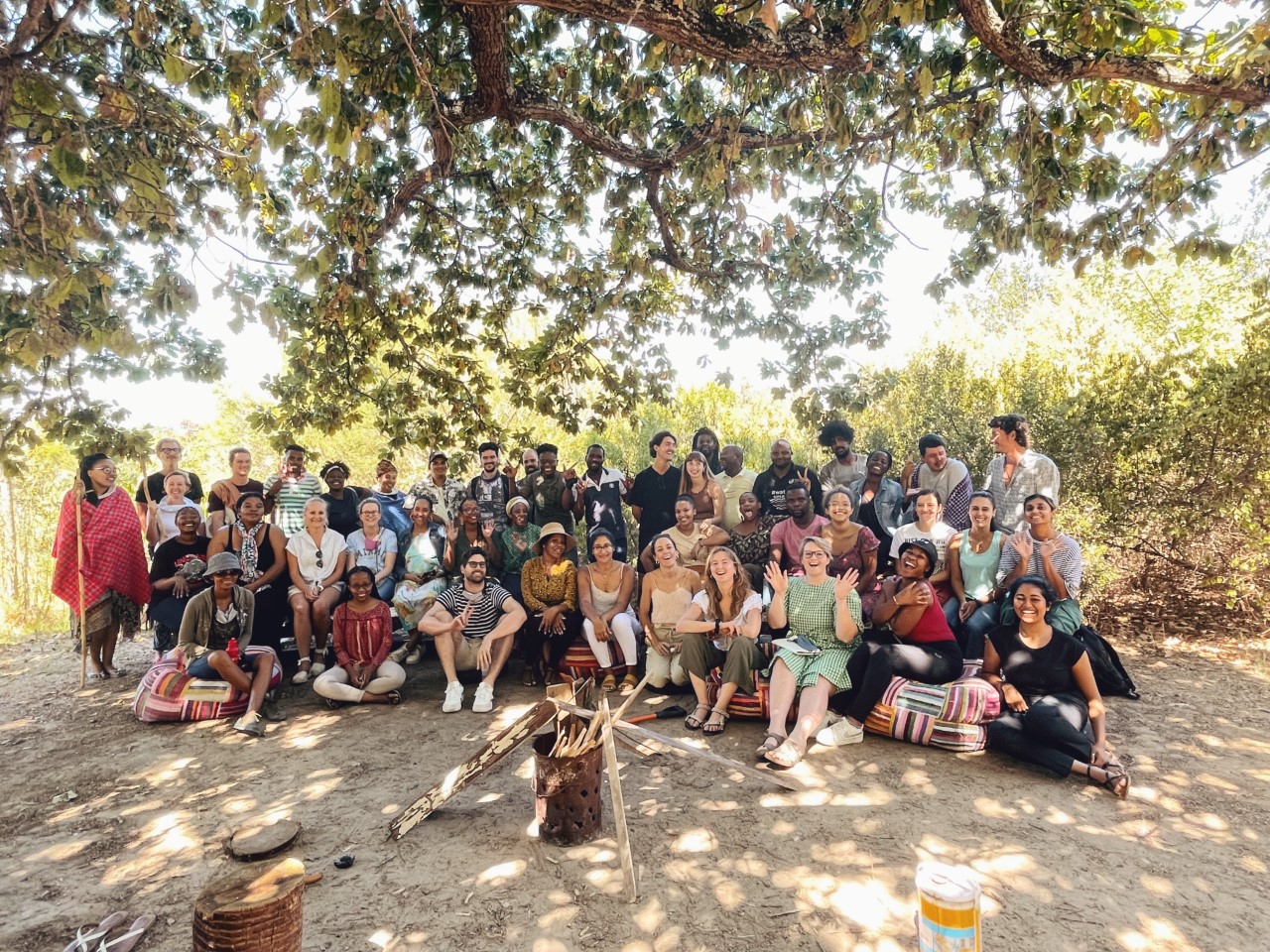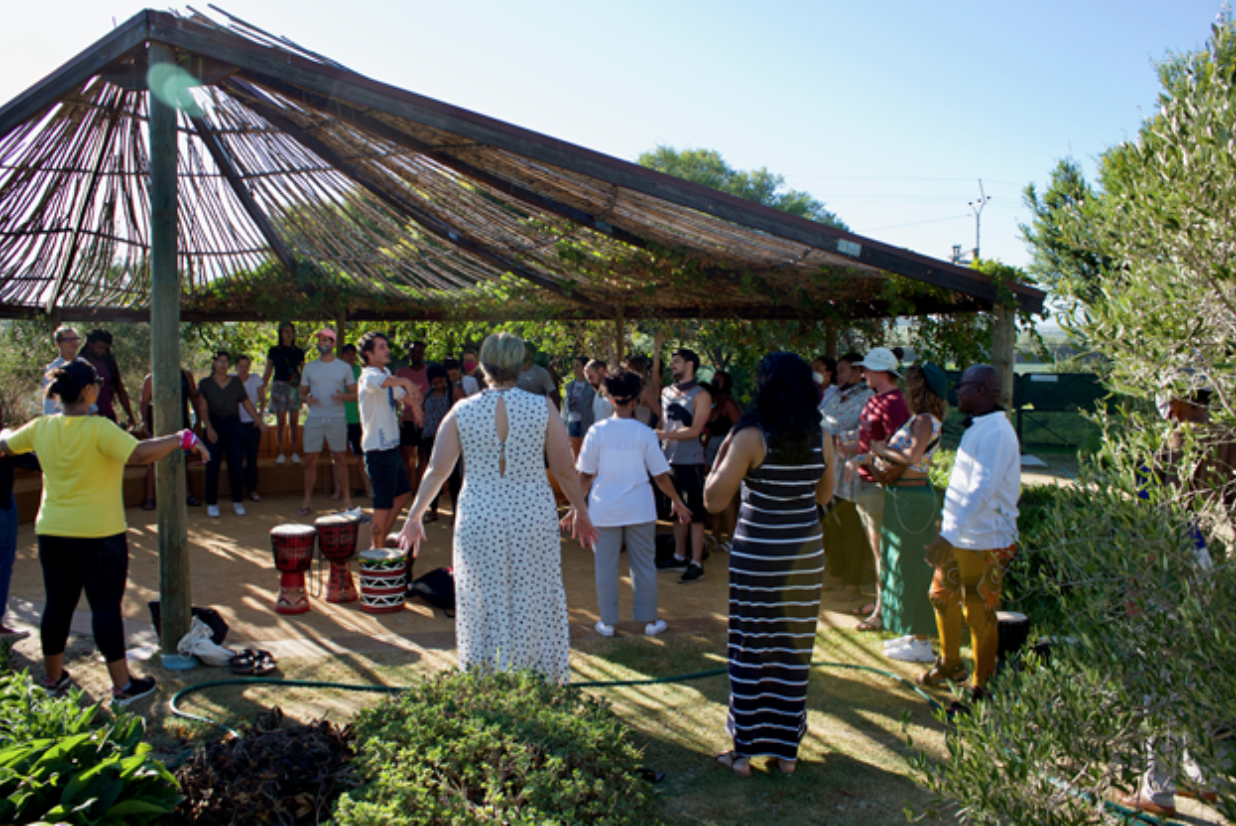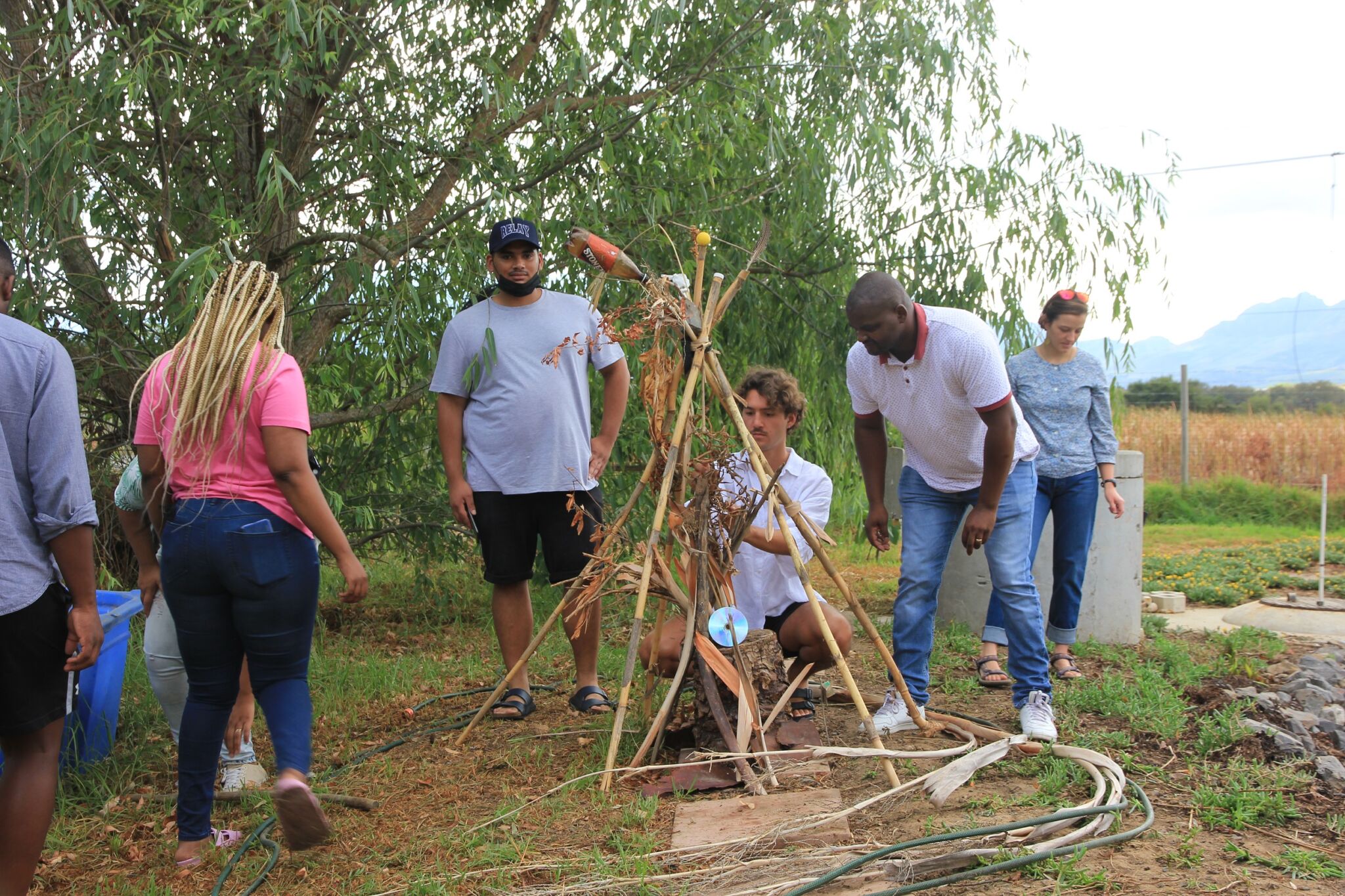The Centre for Sustainability Transitions’ Postgraduate Diploma in Sustainable Development kicked off in February with a cohort of 45 students. They embarked on the (one or two) year-long course to learn how to respond effectively to global and local sustainability challenges, stepping over the threshold with much enthusiasm and grit. The PGDip comprises a compulsory foundation module, Sustainable Development, and then seven elective modules which students complete over either one or two years.
“We launched the year with a three-day orientation programme which had the dual purpose of affording students the opportunity to get to know each other while also laying the foundation of the novel learning approach for which this course is renowned,” explains Dr Megan Davies, programme leader for the PGDip and co-convenor for the foundation module.

Students engaged in a number of collaborative activities to foster connection and shared understanding.
Orientation activities included an array of icebreaker games, creative expression, and personal reflection activities, all of which helped to create a sense of belonging and fun. The group also spent meaningful time relaxing together over wholesome meals prepared by the Sustainability Institute’s nourish team.
“Following two of the oddest years we’ve known, the students arrived charged with anxiety,” says Nina Callaghan, who co-convenes the course with Megan.
“We decided to lean into that and cut straight to the heart of it with guided small group facilitated conversations. This allowed students to become comfortable with one another fairly quickly.”

The PGDip cohort of 2022 and SD 1 co-convenors enjoying time under the oak tree, following group presentations.
Another highlight from the orientation programme was the ‘amazing amble’ around the Sustainability Institute which gave the students a window into the diverse people and projects within the wider Lynedoch Ecovillage where the Institute is based. The Sustainability Institute is a vibrant and experimental ‘practice hub’ and serves as the venue for the PGDip in Sustainable Development.

Sessions were offered in various locations, including the outdoor classroom next to the permaculture garden.
Hosting the course at the Sustainability Institute practice hub is a significant draw card for students as it affords them the opportunity to gain practical experience in alternative approaches to permaculture, nutrition, and education, amongst other sustainability experiments.

Students were prompted to consider the concept of entanglement and then encouraged to connect to nature, their imaginations, and each other by creating land art.
While classes are offered in-person at the practice hub, the students’ base at Stellenbosch University is the Centre for Sustainability Transitions which designs, delivers, and organizes all aspects of the degree.
“The 2022 cohort of PGDip students is diverse by design,” explains Megan. “We reviewed admissions based on academic performance and motivation letters, and then considered a diversity of backgrounds, ages, qualifications, races, and gender identities. The solutions to sustainability challenges necessitate a diversity of views and so a diverse cohort brings a richness—especially to the peer learning aspect of the course.”
Taking transformational learning seriously, during orientation the students agreed on a set of values that would set the ethos for the year. These included collaboration, critical thinking, leadership, creativity, and mindfulness.
“Many students approach this course wanting to know what they can do to bring about a better world. The perspective of change that underpins the teaching and learning philosophy of the PGDip could probably be summed up in the term ‘radical incrementalism’,” says Megan.
“We believe that small innovations and radical experiments can take shape at various scales and locations. This is important because if we only look at global issues, it is easy to become defeatist, but we all have agency. We encourage the students to consider what they can do to bring about change, not only through their professional careers, but through their personal and community lives as well.”
The foundation module explored critical themes such as transitions, agency, relationality, decolonization and experimentation, and what all this means in an African context. Megan reflected that “The course is not only academically rigorous, but also very practical and deeply ethical.”
The past three years have shown the uncertainty of the world in increasing measure, but it is our hope and our mission that through this course, these students will be empowered to address sustainability challenges, locally and globally.

